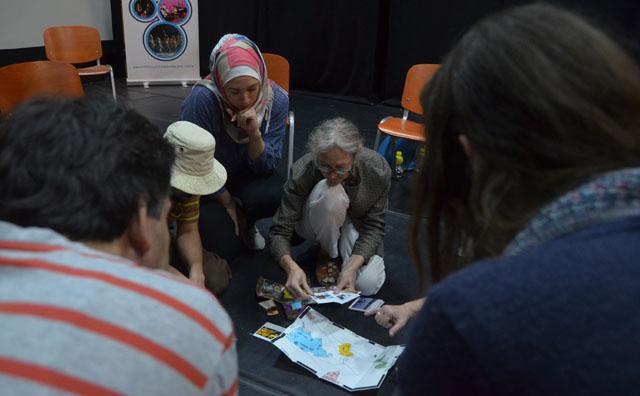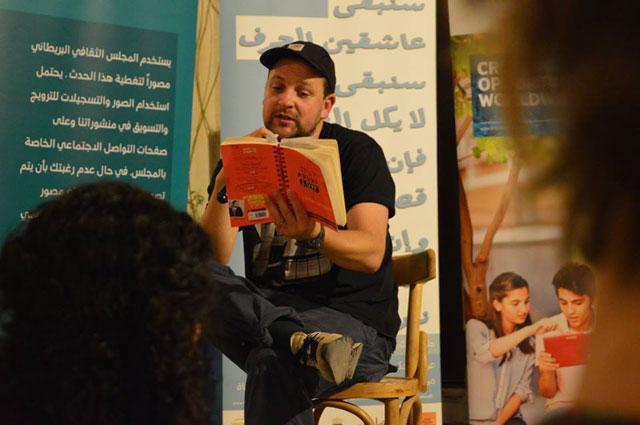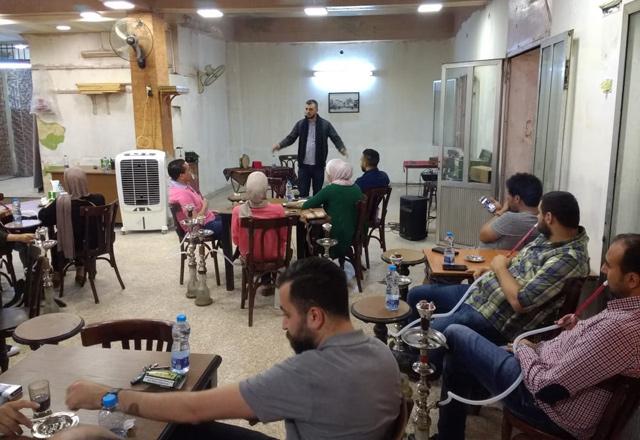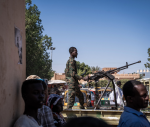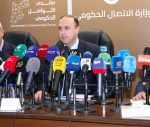You are here
Hakaya festival revives magic of storytelling
By Camille Dupire - Sep 20,2017 - Last updated at Sep 20,2017
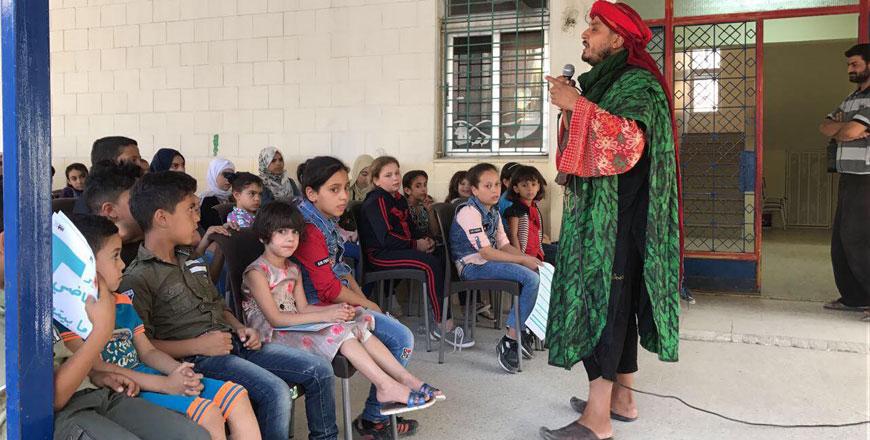
The 10th Hakaya festival includes storytellers from Palestine, Ireland, Algeria, Tunisia and the UK, among others (Photo courtesy of Hakaya Festival)
AMMAN — “A 16-year-old girl in a Palestinian refugee camp in Lebanon once told me ‘we are made up of stories not atoms’,” said Serene Huleileh, board member of the Arab Education Forum, adding: “Since then, this statement has been the guiding principle of our Hakaya collective and programme.”
Launched in 2007 by the Arab Education Forum and Al Balad Theatre, the Hakaya festival 10th edition will wrap upon Thursday, after a week spent celebrating the “centrality of stories in individual development and cultural growth”, a Hakaya statement said.
“The Jordanian society, just like all Arab societies, is primarily an oral society where oral tradition is the first means of transmitting knowledge, identity and history,” Huleileh told The Jordan Times, adding, “however, with modernisation and urbanisation, these traditions were completely lost and that has led to a loss of identity amongst youth and the development of low sense of belonging”.
Understanding that this trend has had negative effects on the cohesiveness of society, and on learning and creativity for its youth and children, the Hakaya collective has been working to gather storytellers from around the world, to offer the people of Jordan a chance to “spark their imagination to new levels of creative endeavours”.
With participants coming from places as diverse as Palestine, Ireland, Algeria, Tunisia and the UK, among others, the festival mixes Eastern and Western influences, looking at storytelling in a “cross-cutting” way.
While this year’s festival themes can appear slightly glum at first — tales of the revolution, travel and migration, among others — they transform into activities of resilience and empowerment.
Huleileh explained: “We are going through very dark times in the region and the main issues that are on people’s minds and in their everyday life are as morose as migration and revolution.”
“We felt like it was important to encourage applicants to reflect on current events that are affecting our world today,” she said, noting that the performances feature lively storytelling initiatives in dance, music, theatre, architecture and education.
On Monday, British Steven Camden offered his audience a glimpse into the life of a young Birmingham boy, through a very touching spoken photo album based on his personal experience. A day earlier, Al Balad Theatre had screened the award-winning “Ghost Hunting” documentary by Raed Andoni, which plunged the viewer into a captivating mix of
mise en scene and animation techniques portraying the traumatic experience of an Israeli detention centre.
“Our mission is not so much to revive storytelling as it is to reinvent it as a new artistic form with deep roots in our tradition and history,” Huleileh explained, noting that “it is also a way to reclaim the importance of stories to artistic expression and to learning, which happens and should happen everywhere and at every point in our lives and not just in schools and academic institutions”.
Hakaya provides storytellers, both experienced and aspiring ones, with the opportunity to meet a diverse public, and to experiment different forms of storytelling.
Outlining the diverse benefits of storytelling, Huleileh noted: “In the Middle East this is of utmost importance as it helps improve education, promotes critical thinking, expands people’s horizons, therefore, increasing tolerance.”
“By reclaiming the conviviality that has long been the main characteristic of our communities, Hakaya works to bring back the magic of stories to people’s lives,” Huleileh concluded.
Related Articles
Storytellers should not only present a story of traditional significance, they should also introduce whatever is in their hearts and their experiences, a veteran British storyteller said on Wednesday.
AMMAN — This year's edition of the Hakaya Festival will introduce a wide range of new elements meant to entertain Jordanians residing a
AMMAN — The traditional scenes of a storyteller presenting an old story at a traditional cafe that are shown in TV series triggered the curi


